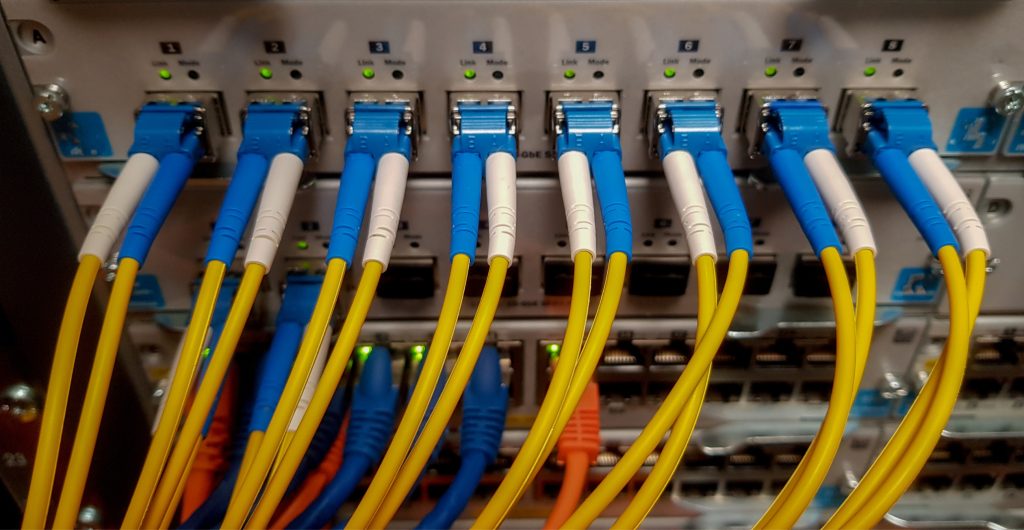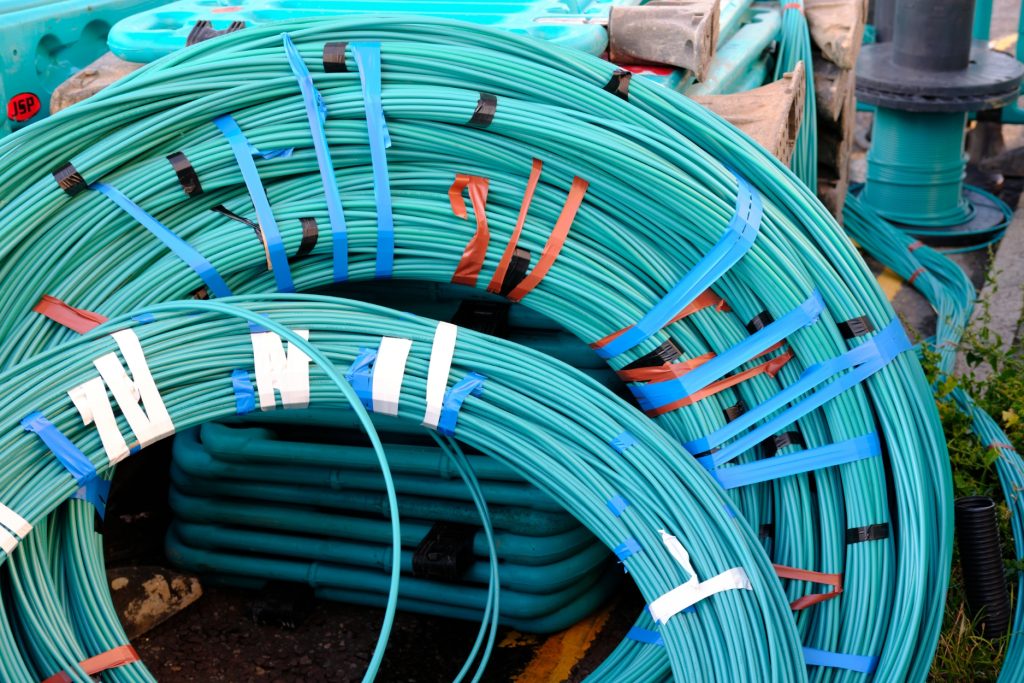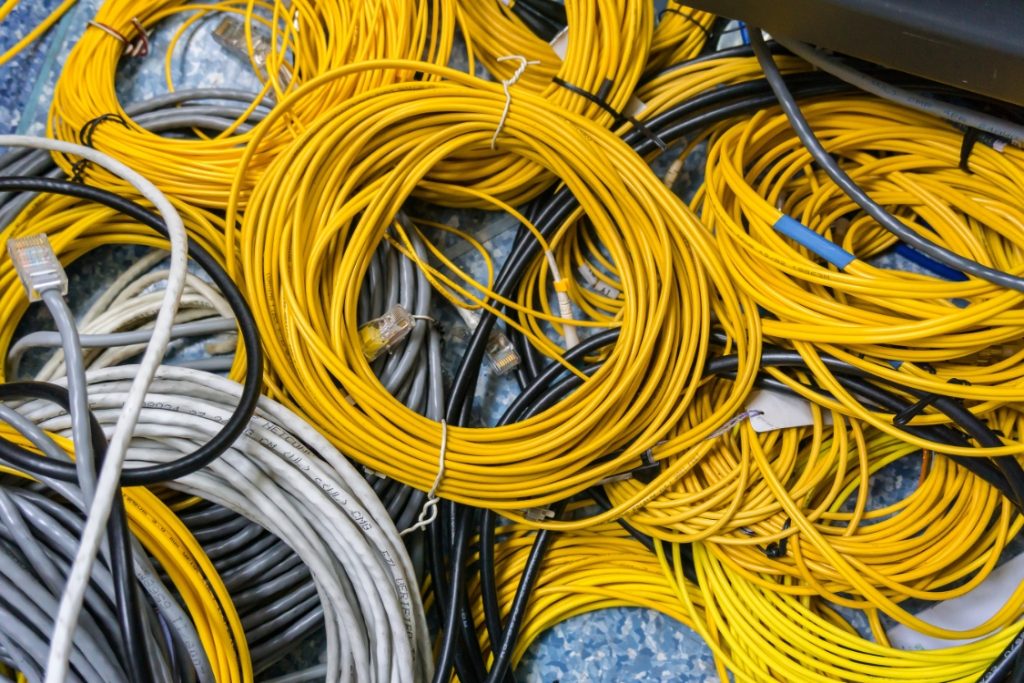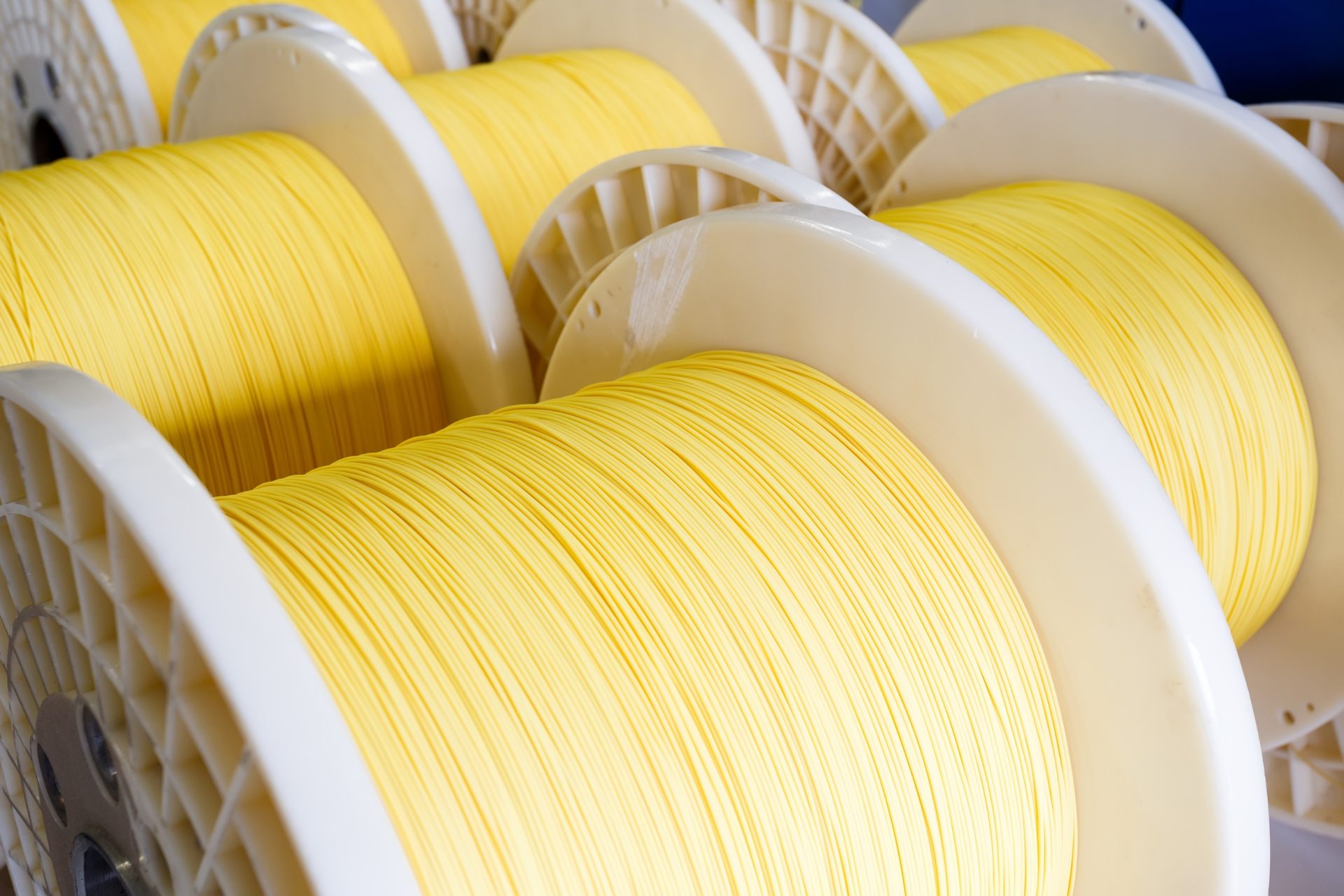In an age driven by technology, where data flows endlessly through networks and information is exchanged at lightning speed, the backbone of our interconnected world lies in the unseen operations of fibre optics.
From enabling lightning-fast internet connections to facilitating seamless communication networks – fibre optics cables have changed how we live and work.
As the demand for reliable and efficient data transmission continues to soar, the need for high-quality fibre optics becomes paramount.
Whether you’re a broadband engineer striving to deliver lightning-speed connectivity, an electrician installing a state-of-the-art network, or an IT professional seeking to optimise data transfer, choosing the right cabling manufacturer is the first step toward success.
Quality control is the bedrock of every industry, ensuring that products and services meet the highest standards and deliver optimal performance. The world of fibre optics is no exception.
As we delve into this comprehensive guide, we will explore the importance of quality control for various businesses and how it directly influences the performance and longevity of fibre optics cables.
The Importance of Quality in Fibre Optics Manufacturing

In the world of modern connectivity, fibre optics has emerged as the frontrunner, revolutionising data transmission with its numerous advantages over traditional copper wire-based systems.
As you consider a high-quality optical fibre cable manufacturer, it is crucial to understand the significance of quality in the manufacturing process. This section will shed light on why quality matters, ensuring that you make an informed decision that aligns with your specific needs.
Unleashing the Power of Bigger Bandwidth
Fibre optics cables offer an unprecedented capacity for data transfer, enabling you to tap into swathes of bandwidth. This expansive pipeline ensures that your network can handle the growing demands of data-intensive applications and deliver a seamless user experience.
Covering Longer Distances for Faster Speed
Unlike traditional copper wire, fibre optics cables transmit data over extended distances without experiencing signal degradation.
It enables faster speeds and seamless connectivity, even over long distances, empowering you to expand your network reach without compromising performance.
Ensuring Higher Resistance and Greater Security
Fibre optics cables are highly resistant to electromagnetic interference, providing a robust and secure data transmission environment. This enhanced resistance safeguards your network from external disruptions, ensuring reliable performance and safeguarding sensitive data.
Reducing Interference for Enhanced Reliability
By utilising light instead of electrical signals, fibre optics cables eliminate the threat of electromagnetic interference. This interference-free environment guarantees consistent and reliable data transmission, allowing your network to operate at its full potential without disruptions.
Future-Proof Flexibility
Fibre optics technology offers unparalleled flexibility for future advancements. With its ability to handle ever-increasing data demands, these cables provide a scalable infrastructure that can adapt to future technologies, ensuring your network remains relevant and efficient for the years ahead.
Lower Total Cost of Ownership
While the initial investment in fibre optics may be higher than copper wire-based systems, the long-term benefits outweigh the costs. The durability, longevity, and minimal maintenance requirements results in a lower total cost of ownership over time, providing a cost-effective solution for your networking needs.
By understanding the importance of quality in fibre optics manufacturing and its advantages, you can make a confident and informed decision when selecting a manufacturer.
The Risks of Choosing Low-Quality Fibre Optics Products

The quality of the products you choose plays a critical role in the performance and reliability of your network.
Opting for low-quality fibre optics products can expose you to many risks and drawbacks that can undermine your connectivity and jeopardise your projects.
In this section, we will look into the potential risks associated with choosing low-quality fibre optics products, emphasising the importance of selecting a reputable fibre optic cable manufacturer for your networking needs.
Compromised Performance and Reliability
Low-quality fibre optics cables may suffer from performance issues, leading to signal degradation, data loss, and slow transfer speeds. These compromises can severely impact the reliability of your network, resulting in downtime, decreased productivity, and frustrated end-users.
Increased Signal Loss and Attenuation
Inferior fibre optics products are prone to higher signal loss and attenuation, limiting the distance over which data can be transmitted effectively. This constraint can restrict the scalability and reach of your network, hindering its ability to accommodate future growth and technological advancements.
Susceptibility to Environmental Factors
Low-quality fibre optics cables are often less robust and more susceptible to environmental factors such as moisture, temperature variations, and physical stress. These vulnerabilities can lead to cable damage, increased downtime, and compromised network performance, especially in demanding or harsh operating conditions.
Security Vulnerabilities
Inadequate fibre optics products may lack the necessary security features to protect sensitive data from interception or breaches. Without proper encryption and shielding mechanisms, your network becomes vulnerable to unauthorised access and data compromises, jeopardising the integrity and confidentiality of your information.
Increased Maintenance and Replacement Costs
Opting for low-quality fibre optics cables can result in frequent maintenance requirements and premature cable failures. The need for frequent repairs and replacements adds to the operational costs but also leads to disruptions, delays, and productivity losses for your organisation.
Lack of Compliance with Industry Standards
Reputable fibre optics manufacturers adhere to stringent industry standards and regulations to ensure their products meet the highest quality and safety requirements. Choosing low-quality alternatives may result in non-compliant products, potentially exposing you to legal liabilities and safety hazards.
In the following section, we will identify the essential factors to ensure you choose a high-quality fibre optics manufacturer that delivers reliable, high-performance products and mitigates these risks effectively.
Identifying a High-Quality Fibre Optics Manufacturer

When choosing high-quality fibre optic cable manufacturers, it’s essential to navigate through the options with a discerning eye. To help you in this process, here are key points to consider:
1) Identify your product requirements
Clearly define your specific needs and desired specifications for the cable, such as bandwidth, distance requirements, and environmental considerations.
2) Compare different prices
Evaluate the pricing structures of various manufacturers to ensure they align with your budget while considering factors like quality, reliability, and long-term value.
3) Read product reviews
Gain insights from other users’ experiences by researching and reading product reviews, which can provide valuable information about the manufacturer’s reputation and the quality of their fibre optics products.
4) Contact references
Reach out to the manufacturer and request a reference list, including contact information for previous customers. Contacting these references allows you to gather firsthand feedback on the manufacturer’s products and services.
5) Assess customer service
Interact with the manufacturer’s customer service team to gauge their responsiveness, knowledge, and willingness to support your needs. A manufacturer with excellent customer service can make a significant difference in your overall experience.
6) Ask about the warranty
Inquire about the warranty offered by the manufacturer. A robust warranty demonstrates the manufacturer’s confidence in their products and provides peace of mind regarding potential issues or defects.
7) Evaluate suppliers’ availability
Determine the availability of the manufacturer’s fibre optics products and their ability to meet your desired delivery timelines. It ensures access to products when needed and avoids unnecessary delays.
8) Make your decision
After careful consideration of the above factors, make an informed decision based on a holistic assessment of the manufacturer’s product quality, reputation, pricing, customer service, warranty, and availability.
By following these steps, you can confidently identify a high-quality fibre optic cable supplier that aligns with your requirements, enabling you to choose the best fibre optics cable for your specific needs.
The Benefits of Researching the Right Fibre Optics Manufacturer

When selecting a fibre optics manufacturer, investing time and effort into thorough research can yield significant benefits.
Gathering details and exploring your options helps you unlock valuable insights that empower you to make an informed decision. Here are the key benefits of researching the ideal fibre optics manufacturer:
Making an informed decision
Researching allows you to gather comprehensive information about different manufacturers, their product offerings, and their reputations.
Armed with this knowledge, you can confidently choose a manufacturer that aligns with your specific requirements, ensuring a successful investment.
Obtaining competitive pricing for a good product
Researching multiple manufacturers allows you to compare prices and negotiate for a competitive deal. By evaluating the balance between cost and quality, you can secure a fibre optics product that not only meets your technical needs but fits your budget.
Understanding post-purchase support availability
Thorough research enables you to uncover crucial details about a manufacturer’s post-purchase support, such as warranties and customer service. By understanding the available support channels and the duration and terms of the warranty, you can ensure peace of mind and prompt assistance in the event of any issues or concerns.
If you dedicate a reasonable amount of time to research, you empower yourself with knowledge and insights that are invaluable in the decision-making process.
Frequently Asked Questions
What are the different types of fibre optic cables?
Fibre patch cords – Short, pre-terminated cables for connecting network devices, such as routers, switches, and servers. They typically have connectors on both ends, allowing easy and quick installation.
Multi Fibre Assemblies – Also known as MPO/MTP cables, consist of multiple fibres bundled together in a single connector. They are commonly used for high-density applications, such as data centres, where multiple connections are simultaneously made.
Bulk Fibre solutions – Normally referred to as spools or reels of optical fibre cable that come in various lengths. These cables are used for larger installations, where long distances are covered or custom cable lengths are required.
How big is the fibre optic manufacturing market?
According to BISWorld’s Fibre-Optic Cable Manufacturing in the UK Industry Report, the fibre optic manufacturing industry is projected to experience a substantial revenue increase over the next five years through 2022-23, with a compound annual growth rate of 19.9%, resulting in a total revenue of £395 million.
This growth includes a 3.9% increase in 2022-23. During this period, the industry is also expected to maintain an average profit margin of 7.7%.
Are fibre optic cables expensive?
Compared to traditional cable, DSL, and phone company internet services, fibre optic internet tends to be pricier.
This is due to the fact that fibre optic cables are constructed with glass, a material known for its durability and reliability, unlike the plastic used in other cable types.
Although the initial cost of fibre optic internet may appear steep, it proves to be a valuable investment for businesses that depend on swift and uninterrupted internet connectivity.
Why should I choose Altimex as my fibre optic manufacturer?
Here at Altimex, we are a trusted and reliable fibre optic manufacturer for several reasons:
We are committed to delivering high-quality fibre optic products that meet industry standards, ensuring optimal performance and reliability for your network.
With years of experience in the field, we have honed our expertise in fibre optic manufacturing, allowing us to provide innovative solutions tailored to your specific requirements.
Altimex prioritises customer satisfaction, offering exceptional post-purchase support, prompt assistance, and responsive customer service to address any inquiries or concerns you may have.
Offering a competitive pricing structure, we allow you to access top-quality fibre optic products without compromising your budget.
Having a strong reputation in the industry, we are trusted by professionals for our reliable products and commitment to excellence.


